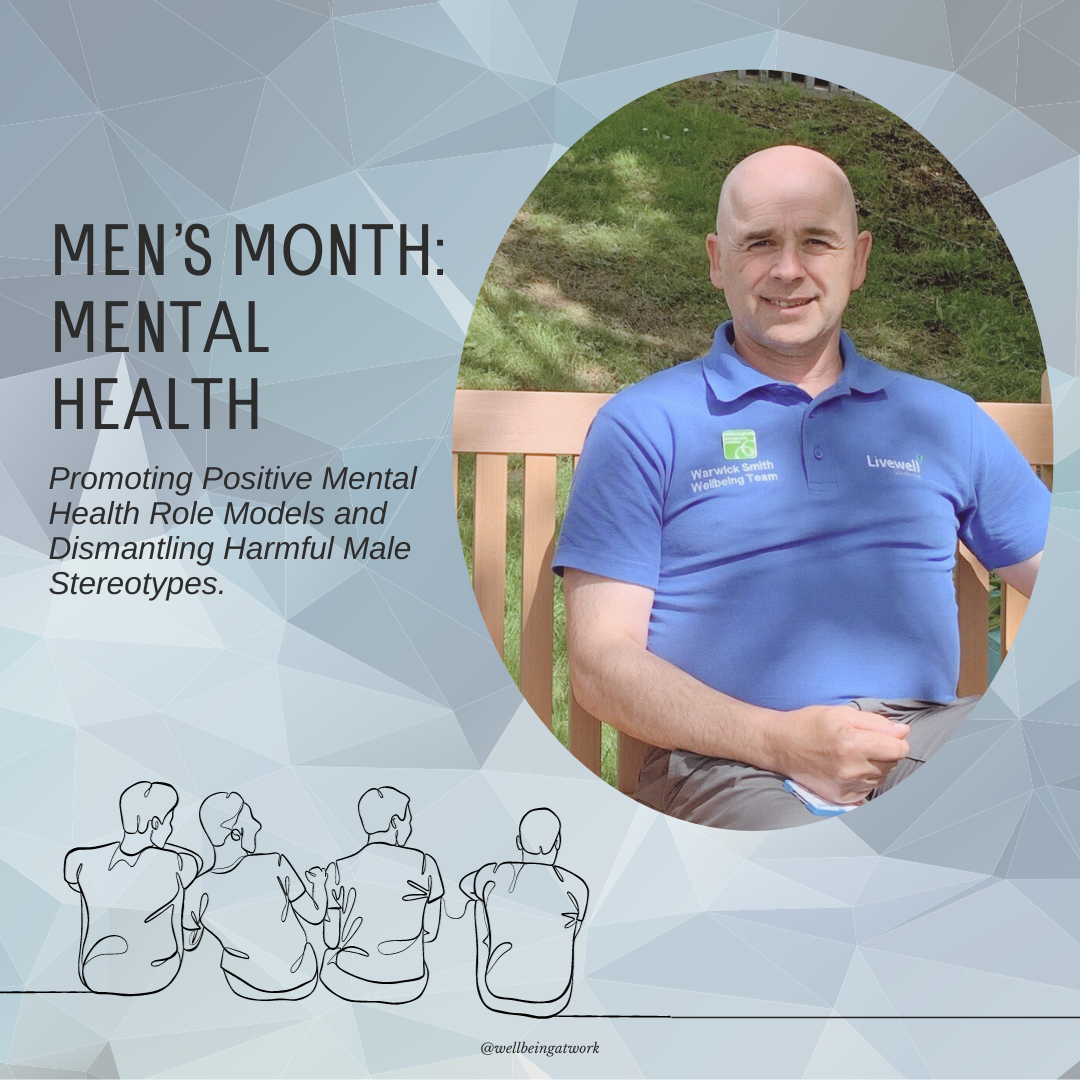
November is the time for our fellow men with Movember and International Men’s Day!
Movember promotes men’s health, while International Men’s Day promotes positive male role models and well-being. This month is our time to unite to raise awareness of mental health, physical health, and suicide.
According to statistics, men are three times more likely to end their lives by suicide, especially those aged 40-49. Men are also less likely to seek psychological help compared to women. This is an ongoing problem in the UK that needs to be addressed.
We spoke to Warwick Smith, a Health Improvement Practitioner and one of our mental health first aid trainers on the Wellbeing Team. During our conversation, we explored ways to support men’s mental health and enhance their wellbeing…
Mental health is a crucial topic for everyone, especially men. I have a decade of experience working in the Community Mental Health Team in Plymouth and I am passionate about supporting people’s mental health. In addition to my professional experience, I was also involved in sports as a young man.
It’s crucial to consider men’s health, particularly mental health, and promote positive male roles. With this in mind, I’d like you to contemplate a concept. The very idea of what it means to be a man appears to have a detrimental effect on men’s wellbeing, and unfortunately, even at my age, I still can’t provide a definitive answer to this. However, I do know that being a man means different things to different people.
Let’s reflect on the stereotypes that exist around us and those that we have inherited from past generations. Considering the stereotypes that we have seen on television, in the news, and on social media today, as well as our history, I would like to ask all men if we need to redefine what it means to be a man.
Many of the stereotypes that are represented can be negative for men. Things like don’t be emotional, don’t be like a woman, don’t show weakness, be dominant, be controlling, don’t cry, be physically strong, be tough, bring all the money in, be an ‘alpha’, and be the boss. It’s important to ask ourselves whether this is truly how others perceive us. What should be the ideal characteristics of a man? Are there any aspects of the stereotype that we find relatable? How can we change this negative thinking and adopt a more positive and appropriate set of values to live by?
It’s important to have values that promote self-compassion, compassion for others, and healthy relationships with colleagues, friends, family, and loved ones. These relationships can enhance our wellbeing and create a positive impact on everyone we interact with.
Going further, using the CLANG Five Ways to Wellbeing: Connect, Learn, Active, Notice and Give. Could this not change stereotypes for the better?
By connecting with others in a compassionate and respectful way we are using our emotions to foster positive change and personal growth.
Learning more about our feelings and how we behave because of them can help us see how this affects those we love.
When we are struggling emotionally, being physically active can help us release negative energy instead of affecting those around us negatively.
When we notice how we are doing emotionally and we do this regularly, we can then seek support before things overwhelm us.
Lastly, giving something of ourselves emotionally to those whom we care about can really show strength when being vulnerable.
Could the implementation of such simple ideas have a positive knock-on effect on your well-being and the well-being of those who are around you?
Remember if you really don’t want to talk about something, it’s the very thing you need to be talking about.


